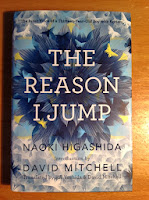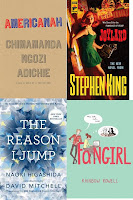 For reasons somewhat still a mystery even to myself, I decided to tackle Dante's The Divine Comedy, and in the process I began to understand why most people simply read the Inferno and leave it at that.
For reasons somewhat still a mystery even to myself, I decided to tackle Dante's The Divine Comedy, and in the process I began to understand why most people simply read the Inferno and leave it at that.
The Situation: On the night before Good Friday, a 35 year-old Dante is lost in the woods and is suddenly attacked by a lion, a leopard, and a wolf. He is then rescued by the poet Virgil (of The Aeneid fame) and they begin their journey to and through the underworld, starting with the Inferno, or Hell. Having survived the Inferno, Virgil then continues to lead Dante through Purgatorio, or Purgatory. And naturally, after Purgatory comes Paradiso, or Paradise. But Dante's guide into heaven is no longer the poet Virgil, but instead Beatrice, his ideal woman. And after completing the tour of Paradiso, the epic poem ends with Dante finally understanding the mystery of the humanity and divinity of Christ, and his soul becomes aligned with God's love.
The Problem: Being allowed to take a tour of Paradise is all well and good, but Dante does have to literally go through Hell in order to get there, all ten circles of it. And in order to get out of it and only into Purgatory, Virgil leads Dante as they climb down Satan's form (seriously) in order to escape the last circle. And while going through these ten circles, the still living Dante is witness to the many souls who have found themselves in the various circles of hell, and the punishment they must endure for all eternity. The punishment for every sin has a sort of poetic justice to it, such as flatterers being covered in excrement (seriously) for all eternity. By comparison, going through Purgatory isn't nearly as jarring, even as Dante is taken through those who committed one of the seven deadly sins. There are many moments when Dante, despite Virgil's insistence that he will be fine, fears for his own well-being. But he must trust his leader if he is to make it through this journey and see his beloved Beatrice.
Genre, Themes, History: The Divine Comedy is an epic poem written somewhere between 1308 and 1321. It is also an allegory as it not only goes through three levels of the afterlife, but those levels also represent the journey of the human soul towards God. Inferno is where Dante sees sin for what it really is. Purgatorio is where the love of God, which is pure, is shown to become sinful when it flows through humanity, therefore resulting in the seven deadly sins. And finally, while Inferno and Purgatorio were centered around sin, Paradiso is focused on the four cardinal virtues as well as three theological virtues. The entire poem consists of a total of 14,233 lines divided into the three different parts, which each part containing 33 cantos, sort of like chapters. The number three has a prominent place throughout the poem, and it is even written in tercets according to the rhyme scheme aba, bcb, cdc, ded, etc.
My Verdict: As I mentioned in the introduction, I could easily see why people tend to only read the Inferno. For whatever reason, Purgatorio and Paradiso just aren't that interesting. I can't decide if it is the way they were written, or if it is simply because sins are interesting to human beings, while virtues or even lesser sins are not. Once Dante and Virgil make it past Satan, I found it really hard to continue reading. Ultimately I am glad I did, but it was a struggle. The good news is that it is poetry, so the reading actually goes much faster than it would for most other books more than 500 pages long. The bad news though, is that it is poetry and therefore for someone like me it could be hard to understand. Thankfully, each canto began with a brief summary of what was to follow.
Favorite Moment: When Dante sees the three faces and mouths of Satan, with one mouth containing Judas Iscariot, the disciple that betrayed Jesus, and the other two mouths holding Brutus and Cassius, the men that betrayed Julius Caesar. As one of the few people ever whose favorite Shakespeare play is Julius Caesar, it felt right to me that Brutus and Cassius would have places in Hell next to Judas.
Favorite Character: There are really only three consistent characters throughout the poem, and they are Dante, Virgil, and then Beatrice. Of the three, I choose Virgil, despite how little I care for his Aeneid. He serves as an excellent guide for Dante and is extremely patient throughout the narrator's doubts and fears.
Recommended Reading: I honestly have nothing for this. I would never recommend for anyone to ever read The Aeneid, so that's out. Since I mentioned it, I suppose I'll recommend William Shakespeare's Julius Caesar. I've always wanted to become one of those people that can recite Marc Antony's speech from memory, but since Shakespeare can sometimes be even harder to grab onto than The Divine Comedy proved to be, that process has been extremely slow going.











